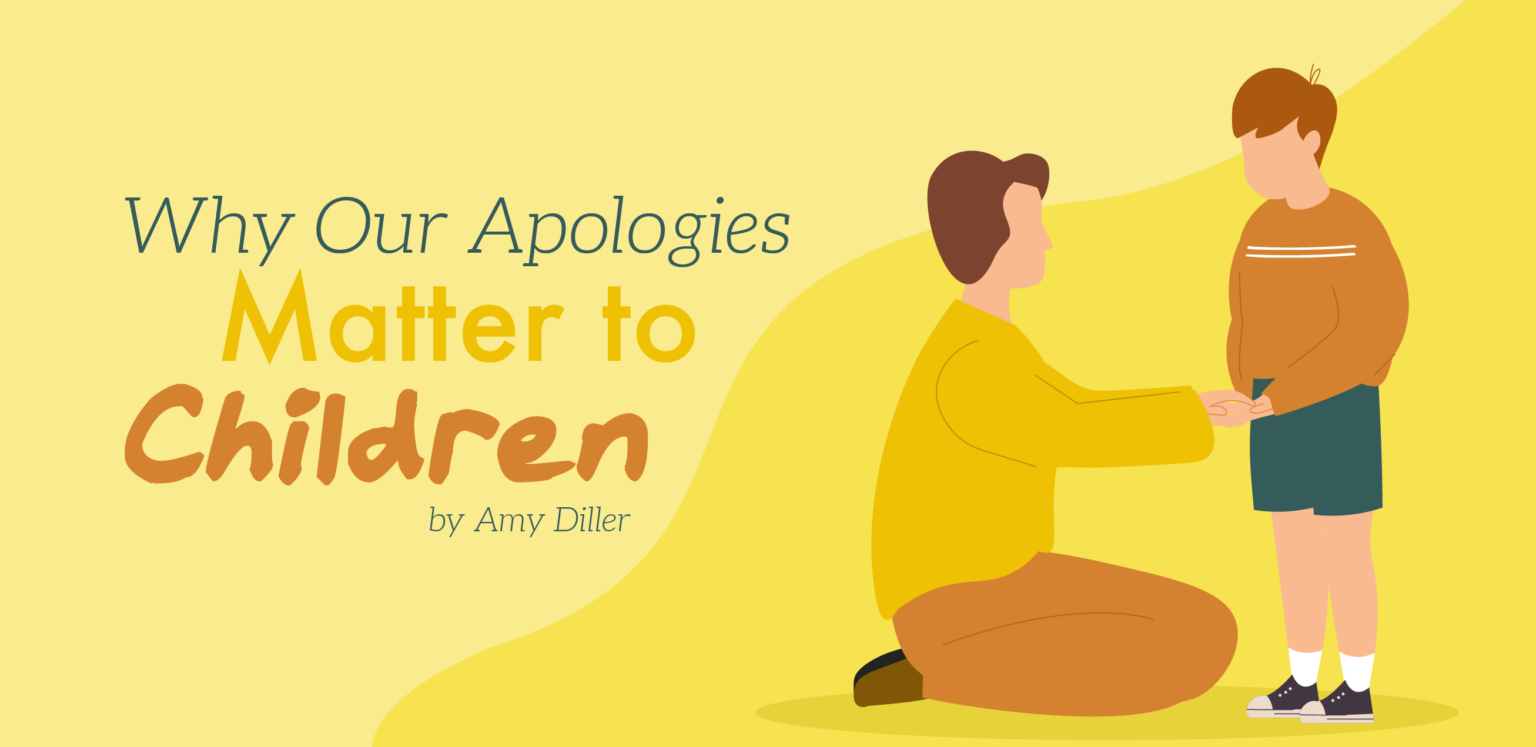
Why Our Apologies Matter to Children
We talk a lot about the effectiveness of modeling as a teaching method. Children are naturally keen observers and imitators. Their brains are designed to watch what’s going on around them and to mimic the behaviors of others. How often have you seen a toddler pick up an object the size of a phone, put it against their ear, and start babbling into it? What about kindergarteners playing with baby dolls? They display a pretty clear understanding of what you do to care for an infant.
Kids spend a great deal of time watching others so they can learn about the world and how it works. They gain insight into what to do or not to do in different situations. More importantly, they pick up on the beliefs that drive behavior. The greater the exposure to positive examples, the better the chance for those character traits to be internalized and reproduced.
One of the heart postures we want to see nurtured in children is the understanding of and the ability to offer a humble and sincere apology. In Matthew 5:23-24, Jesus says, “So if you are offering your gift at the altar and there remember that your brother has something against you, leave your gift there before the altar and go. First be reconciled to your brother, and then come and offer your gift.” He calls us to be people who are quick to apologize and make amends.
This applies not just to adult-adult or child-child relationships but also to those between adults and children. The messages children internalize about apologies and making amends depend on the approach we take when we do something that hurts them.
Here are some messages kids can hear when we fail to apologize or do so in a counterproductive way:
If we let too much time pass between an offense and an apology, kids can hear that it’s not a high priority for us.
If we don’t ever say we’re sorry, kids hear that grown-ups are always right, which also communicates that kids are always wrong.
If we say, “I’m sorry if I hurt you…”, kids hear that the way they feel is trivial or their hurt is invisible.
If we say, “I’m sorry, but…” continuing with how the child provoked us, kids hear that they are to blame for the poor behavior of others.
If we stop at the words “I’m sorry” and don’t take steps to make things right, kids learn that apologies are meaningless.
Let’s flip the script and look at what a sincere apology says:
When we are quick to apologize, kids learn that our relationship with them is a high priority.
When we offer an apology to our kids, they hear that taking responsibility for poor choices is the appropriate response when we hurt someone else.
When we say, “I know I hurt you when I…”, kids hear that their feelings are valid and important to us.
When we say, “I was wrong,” kids learn that a sincere apology comes from a place of humility.
When we ask, “How can I make things better?” and follow through on it, kids see that we love them enough to do what it takes to restore and deepen our relationship.
Although we know that much of what is learned happens in the home and parents’ voices are loudest, the influence of other adults carries weight. What we model matters. When we are people who are quick to apologize and seek to make things right, we strengthen our relationships with the kids we serve while setting an example for them to follow in their own relationships with their friends and family.



